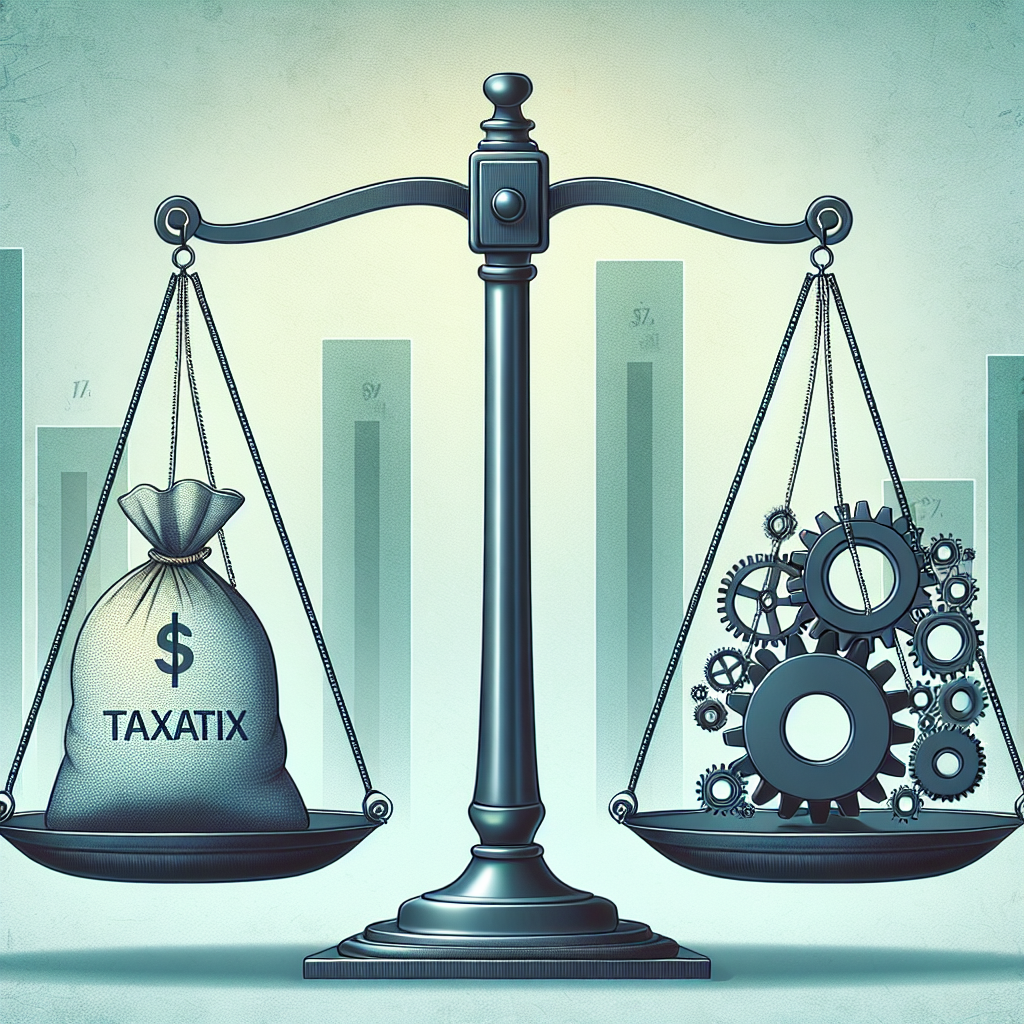Taxation is a fundamental aspect of modern economies, playing a crucial role in funding government activities and shaping economic behavior. It is a powerful tool that can have significant effects on economic performance, influencing consumption, investment, savings, and overall growth. The way taxes are structured and levied can have both positive and negative impacts on the economy, making it an important area of study for economists and policymakers.
How Does Taxation Affect Economic Performance?
Taxation can affect economic performance in a variety of ways, depending on the type of tax, its level, and how it is implemented. Here are some of the key ways in which taxation can influence economic performance:
1. Incentives for Work and Investment: Taxes on income, profits, and capital gains can affect individuals’ and businesses’ incentives to work and invest. High taxes can reduce the rewards from work and investment, leading to lower levels of economic activity. On the other hand, low taxes can provide incentives for individuals and businesses to work harder and invest more, which can boost economic growth.
2. Consumption and Saving: Taxes on consumption, such as sales taxes or value-added taxes, can affect consumers’ behavior by increasing the cost of goods and services. This can lead to lower levels of consumption and higher levels of saving, which can impact economic growth. Taxes on savings, such as interest or dividends, can also affect individuals’ decisions to save or spend, influencing overall economic performance.
3. Investment and Productivity: Taxes on capital, such as corporate income taxes or capital gains taxes, can impact businesses’ decisions to invest in new equipment, technology, and infrastructure. High taxes on capital can discourage investment, leading to lower levels of productivity and economic growth. Lower taxes, on the other hand, can stimulate investment and innovation, boosting the economy.
4. Redistribution and Equity: Taxes can also be used to redistribute income and wealth, ensuring a more equitable distribution of resources in society. Progressive income taxes, for example, tax higher-income individuals at a higher rate, redistributing income to lower-income individuals through government programs and services. This can have social benefits by reducing poverty and promoting social cohesion.
5. Fiscal Sustainability: Taxes play a crucial role in funding government activities, including public services, infrastructure, and social programs. Adequate taxation is necessary to ensure the fiscal sustainability of the government and prevent budget deficits and debt accumulation. Taxes also influence government spending decisions, as policymakers must make choices about how to allocate resources based on available tax revenues.
FAQs:
Q: What is the relationship between taxation and economic growth?
A: The relationship between taxation and economic growth is complex and depends on various factors, such as the level and structure of taxes, the efficiency of tax administration, and the overall economic environment. In general, high taxes can hinder economic growth by reducing incentives for work, investment, and innovation. However, well-designed taxes can also support economic growth by funding public infrastructure, education, and other investments that promote long-term prosperity.
Q: How do different types of taxes affect economic performance?
A: Different types of taxes can have different effects on economic performance. For example, income taxes can reduce incentives for work and investment, while consumption taxes can influence consumer behavior. Taxes on capital can impact businesses’ decisions to invest and innovate, affecting productivity and economic growth. The overall impact of taxes on economic performance depends on how they are structured and implemented.
Q: What are the implications of tax policy for inequality and poverty?
A: Tax policy can have significant implications for inequality and poverty, as taxes can be used to redistribute income and wealth within society. Progressive taxes, which tax higher-income individuals at a higher rate, can help reduce income inequality by redistributing resources to lower-income individuals. Taxes can also fund social programs and services that support low-income individuals and families, helping to reduce poverty and promote social equity.
In conclusion, taxation is a critical component of economic policy that can have far-reaching effects on economic performance. By understanding the ways in which taxes influence behavior and economic outcomes, policymakers can design tax policies that support growth, equity, and fiscal sustainability. By considering the trade-offs and unintended consequences of different tax options, governments can create a tax system that promotes economic prosperity and well-being for all individuals and businesses.
